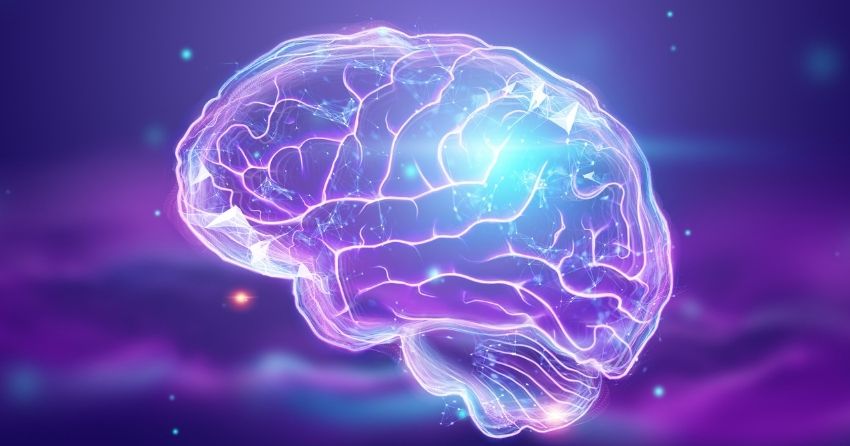NMN Preserves Cognition and Prevents Loss of Neurons Caused by Diabetes

Diabetes has major effects on cognitive decline and the risk of developing dementia. This metabolic disease that causes high blood sugar levels due to dysfunctional or insufficient insulin is linked with decreased brain levels of nicotinamide adenine dinucleotide (NAD+), an essential bioenergetic molecule. This has triggered intense interest in finding ways to boost NAD+ levels to prevent dementia.
Chandrasekaran and colleagues published an article in the International Journal of Molecular Sciences where they tested if the administration of the precursor of NAD+ nicotinamide mononucleotide (NMN) can prevent diabetes-induced memory deficits. What they found — that NMN is preventative against cognitive impairment and brain cell loss in a mouse model of diabetes — brings researchers one step closer to preventing brain cell loss and dementia in diabetic patients.
Diabetes damages neurons and compromises brain structure
Certain types of dementia, such as Alzheimer’s disease, may result from insulin resistance — when cells in your muscles, fat, and liver don't respond well to insulin and can't use glucose from your blood for energy — in the brain and nervous tissues. Since insulin is needed to bring sugar (glucose) into cells for use as fuel, any abnormalities in insulin and glucose metabolism may impair the proper functioning of brain tissue. Perhaps it is not surprising that diabetics that need insulin as part of their treatment have four times the risk of developing dementia compared to non-diabetics (1).
Impaired glucose metabolism changes the way cells in the brain process energy, which can produce excessive amounts of harmful byproducts of metabolism called free radicals (2). Damage by free radicals contributes to increased brain cell death through oxidation of proteins, DNA damage, and degeneration of the fatty structures like membranes in cells. Over time, the changes caused by diabetes lead to impairment in the function and structural integrity of different parts of the brain, such as the hippocampus — a complex structure that plays a major role in learning and memory.

Diabetes impairs cellular function by depleting NAD+
NAD+ is essential for the proper functioning of multiple cellular processes including metabolism, sensing DNA damage, and cell survival. The mitochondria, commonly known as the cell’s powerhouse, need a steady supply of NAD+ to produce fuel for cells through oxidative phosphorylation — a major pathway cells use to produce energy. However, NAD+ levels decline with age and in neurodegenerative conditions and diabetes (3). Diminished levels of NAD+ result in impaired mitochondrial and cellular function, ultimately leading to aging and cell death.
However, researchers have found that treatment with NAD+ precursors, such as nicotinamide mononucleotide (NMN), can replenish cellular NAD+ levels. Researchers have speculated that NMN supplementation might be useful in preventing or even reversing some brain changes caused by aging and conditions like diabetes that lead to dementia.
NMN preserves the cellular environment and protects brain structure
A recent study by Chandrasekaran and colleagues provides some insight into how NMN may preserve brain function and delay the appearance of dementia (4). These researchers studied the effects of diabetes on the brains of rats and compared the effect of supplementing with NMN against a control group.
Three months after artificially inducing diabetes in the rats, the effect on cellular NAD+ was clear. Chandrasekaran and colleagues saw a sharp reduction of available intracellular NAD+. However, after just a few days of supplementing with NMN, the levels of NAD+ had been restored. NMN also restored the metabolic profile of the diabetic rats, normalizing the diabetes-induced changes in several biomarkers of neurodegeneration, such as glutamate, myoinositol, and taurine.
Chandrasekaran and colleagues also monitored the volume of the hippocampus of the rats and the total amount of neurons present in their brains. Some diabetic rats lost up to 40% of their brain volumes, but NMN prevented these changes. Regarding brain cell count, after painstakingly counting the number of neurons present in brain samples, the researchers found that, on the one hand, diabetic brains had fewer neurons in the hippocampus compared to normal brains. On the other hand, rats that were diabetic but supplemented with NMN did not show evidence of neuron loss.
NMN had important effects on memory as well. Rats that were diabetic performed poorly on maze memory tests, but diabetic rats that had received NMN supplementation completed the tests effectively and were willing to accept new memory-testing challenges.
Supplementing was also beneficial for cellular energy production. An adequate supply of NAD+ allowed mitochondria to operate under normal oxidative phosphorylation, which primed and protected the mitochondria for the high energy demand induced by diabetes. Treatment with NMN also normalized the levels of enzymes related to cell health and aging called sirtuins, which protected against neurodegeneration by preventing excessive amounts of protein acetylation.
These results show NMN prevents neurodegeneration induced by diabetes. In this study, supplementation with NMN preserved brain volume, prevented neuronal loss, and improved cellular respiration in brain tissues. Similar studies will explore the therapeutic potential of NMN in humans, as an agent against neurodegeneration and as a preventive option against dementia.
References:
- Ott A, Stolk RP, van Harskamp F, Pols HA, Hofman A, Breteler MM. Diabetes mellitus and the risk of dementia: The Rotterdam Study. Neurology. 1999;53(9):1937-1942. doi:10.1212/wnl.53.9.1937
- Zhou Y, Lian S, Zhang J, et al. Mitochondrial Perturbation Contributing to Cognitive Decline in Streptozotocin-Induced Type 1 Diabetic Rats. Cell Physiol Biochem. 2018;46(4):1668-1682. doi:10.1159/000489243
- Yoshino J, Baur JA, Imai SI. NAD+ Intermediates: The Biology and Therapeutic Potential of NMN and NR. Cell Metab. 2018;27(3):513-528. doi:10.1016/j.cmet.2017.11.002
- Chandrasekaran K, Choi J, Arvas MI, et al. Nicotinamide Mononucleotide Administration Prevents Experimental Diabetes-Induced Cognitive Impairment and Loss of Hippocampal Neurons. Int J Mol Sci. 2020;21(11):3756. Published 2020 May 26. doi:10.3390/ijms21113756





